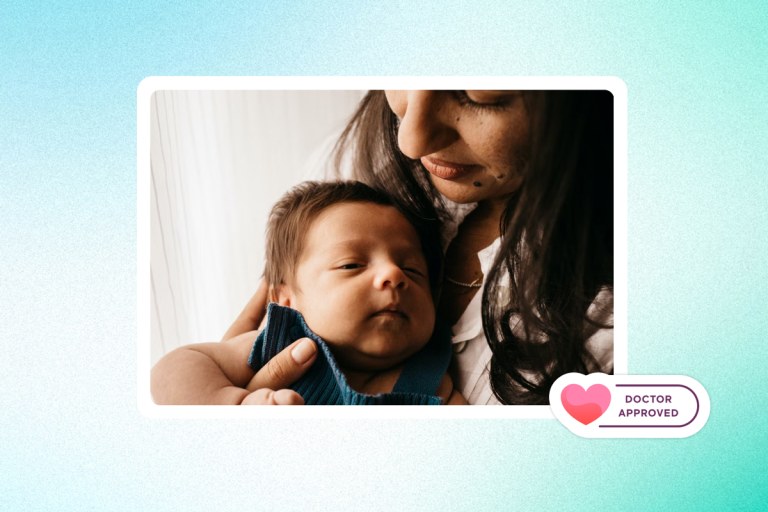
When to Call a Doctor, 911 or the ER for Your Baby
An emergency room doctor walks you through the signs in babies that need immediate medical attention.

In This Article
Written Dr. Seran Kim, board-certified Emergency Physician
"Making a decision to have a child—it’s momentous. It is to decide forever to have your heart go walking around outside your body." -Elizabeth Stone
New parenthood is beautiful—as well as exhausting, exhilarating and emotionally tumultuous. It can also be incredibly scary to realize that you can’t always shield your new little one from harm.
As an emergency physician, the number one question I receive from fellow parents and caregivers is: “When should I take my baby to the emergency room?” The ER (or ED, Emergency Department, as we refer to it) can be a frightening prospect for many reasons.
Each year, there are over 30 million ER visits for children, for injuries ranging from respiratory and gastrointestinal symptoms to poisoning and falls, but the majority of these children (over 95%) are discharged home.
Knowing when to go to the emergency room in the first place, however, can help avoid an unnecessary visit or more efficiently direct you to the best place to receive medical attention.
When Should You Call 911 for Your Baby?
You should call 911 if your baby:
Is limp, can’t wake up or has a seizure
Has any respiratory distress, such as grunting, blue lips or rapid breathing
Has had a significant fall with a subsequent head or neck injury
When Should You Go to the ER with Your Baby?
You should go to the emergency room if your baby:
Is less than or equal to 12 weeks old and has a fever greater than or equal to 100.4 degrees Fahrenheit
Has a rectal temperature less than 97.8 degrees Fahrenheit
Does not have urine production for greater than 8 hours
Is not eating, drinking or tolerating feeds
Has a bulging soft spot on its head
Is lethargic or irritable, despite comforting measures, or is incessantly crying for over 2 hours straight
Has bright green vomit
Has blood in vomit or stool
Has any skin color changes (e.g. blue, yellow, or pale)
Has bleeding that will not stop after 5 minutes of direct pressure, or has any large or deep cuts
Has any poisoning
Has been burned or experienced smoke inhalation
Has had a near-drowning experience
When Should You Call the Doctor with Your Baby?
You should contact your pediatrician if your baby:
Is 3-6 months old and has a fever up to 102 degrees Fahrenheit and seems sick, or has a temperature greater than 102 degrees Fahrenheit
Is 6-24 months old and has a fever greater than 102 degrees Fahrenheit, for longer than 1 day, without any other associated symptoms
Is 6-24 months old and has a fever greater than 102 degrees Fahrenheit, with other associated symptoms such as severe diarrhea or cough
If baby has any fever for more than 3 days
Has cold symptoms that interfere with breathing, nasal mucous greater than 10 days, ear pain or cough greater than 7 days
Has redness, bleeding or discharge at the umbilical area or penis after circumcision
Has especially loose stools or diarrhea
Has forceful vomiting
Has constipation, or fewer bowel movements than usual, or appears uncomfortable when passing stool
Has a rash associated with a fever, or a rash that looks infected or any unexplained rash
Has eye discharge or redness
Remember, your intuition as a parent or caregiver is invaluable, as you know your baby best. When in doubt, err on the side of caution. It’s all you can do when your heart is out walking outside of your body.
Disclaimer: The medical information provided does not substitute for medical advice and is for educational purposes only.
